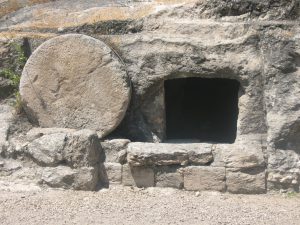 The Watchtower’s two-class salvation system is premised on the belief that there will be two different types of resurrection:
The Watchtower’s two-class salvation system is premised on the belief that there will be two different types of resurrection:
- The 144,000, when they die, receive spirit bodies suitable for life in heaven. Their physical bodies will never be resurrected. They will live in heaven and never again be on earth.
- The great crowd will one day be raised from the dead in physical—not spirit—form. They will live on the earth forever and never go to heaven.
I have previously posted a series of blog articles regarding the resurrection which you may find helpful in challenging these Watchtower’s teachings. I’ll give you links to those articles below along with a brief synopsis of what each covers.
Do people have a separate soul or spirit that survives physical death?
Is the resurrection a reuniting of soul, spirit, and body?
If not, in what sense is the resurrected person the same person who died?
Is the body that dies the same body that is raised from the dead?
This article explains the differences between the Christian and Watchtower teachings on these issues.
Doesn’t the statement in 1 Corinthians 15:44-45 that there is a natural body and a spiritual body prove that the great crowd will be raised with physical (natural) bodies, while Jesus and the 144,000 will have spirit bodies?
How can the great crowd (who will be resurrected with physical bodies) go to heaven and reign with Christ when 1 Corinthians 15:50 plainly states that “flesh and blood cannot inherit the kingdom of God”?
This article shows how to answer these Watchtower questions by examining 1 Corinthians 15:35-50 verse-by-verse in context.
Will ever human being who ever lived and died be resurrected?
If not, who will and who won’t be resurrected?
This article contrasts Watchtower doctrine on these matters with what the Bible really says and points out contradictions in Watchtower teachings on this subject.
How does the Watchtower’s doctrine that the fate of the unrepentant is annihilation affect its views of who will and won’t be resurrected?
What is “the judgment” referred to in Hebrews 9:7—God’s pronouncement of guilt and punishment for the unrepentant (Christian teaching) or a probationary period during the millennial kingdom in which people will have a second chance at everlasting life (Watchtower teaching)?
The Watchtower has a unique rendering of Romans 6:7: “For the one who has died has been acquitted from his sin.” If that’s so, then why does the Watchtower believe some people were too wicked to be resurrected?
This article discusses these issues and suggests questions you can ask Jehovah’s Witnesses to challenge the Watchtower’s positions.
Are Christians resurrected the moment they die?
Has the resurrection of the 144,000 already begun?
What about the resurrection of the great crowd?
Will all who are resurrected be raised at the same time? If not, what will be the process?
Will members of the great crowd be resurrected at the beginning of the millennial kingdom? At the very end? At various points in the middle?
This article contrasts the Christians and Watchtower answers to these questions and suggests ways to get Witnesses to re-examine the Watchtower teachings.
Will all Christians go to heaven?
Will some Christians live on a paradise earth without ever going to heaven?
Are there really two separate classes—140,000 destined for heaven only and a great crowd destined for earth only?
Will people be able to go back and forth between heaven and earth?
This article discusses these questions and shows ways to challenge Watchtower doctrines regarding these matters.
Your turn:
Have you used information from any of these blog articles about the resurrection in talking with Jehovah’s Witnesses? How did it go?
Share your thoughts in the comments.
(Photo by James Emery: https://www.flickr.com/photos/emeryjl/520114756)

Leave a Reply
Be the First to Comment!